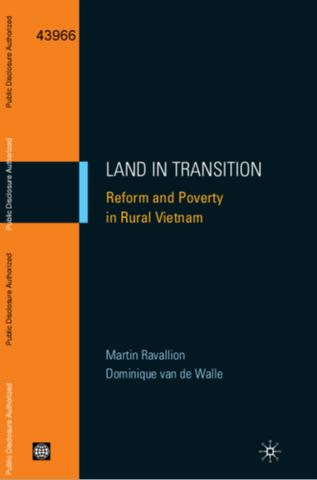Resource information
The policy reforms called for in the
transition from a socialist command economy to a developing
market economy bring both opportunities and risks to a
country's citizens. In poor economies, the initial
focus of reform efforts is naturally the rural sector, which
is where one finds the bulk of the population and almost all
the poor. Economic development will typically entail moving
many rural households out of farming into more remunerative
(urban and rural) non-farm activities. Reforms that shift
the rural economy from the relatively rigid, control-based
farming institutions found under socialist agriculture to a
more flexible, market-based model in which production
incentives are strong can thus play an important role in the
process of economic growth. However, such reforms present a
major challenge to policy makers, who are concerned that
they will generate socially unacceptable inequalities in
land and other dimensions relevant to people's living
standards. This book studies how the changes in land
institutions and land allocation required for Vietnam's
agrarian transition affected people's living
standards-notably that of the country's rural poor.
Living standards means household command over commodities,
as measured by consumption



